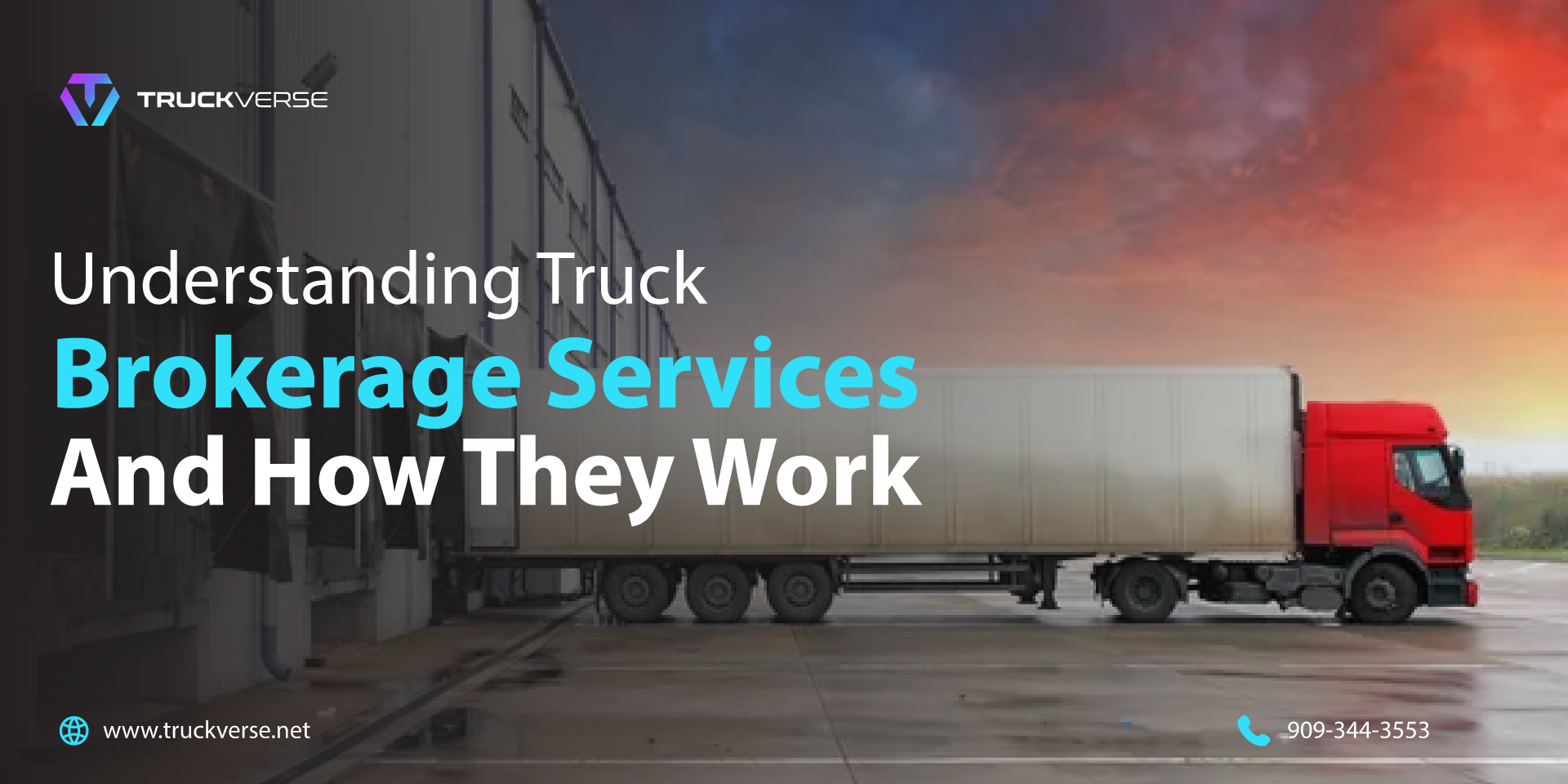If you’ve ever had to move a shipment from one city to another, you already know it’s not always as simple as it sounds. Between finding a truck, negotiating rates, and making sure the goods actually arrive on time, the whole process can get stressful—fast. That’s exactly why truck brokerage services exist.
What Are Truck Brokerage Services?
Truck brokerage services act as the middlemen between shippers (who need freight moved) and carriers (who can move it). Think of them as the matchmaking service of the freight world—connecting the right truck to the right load at the right time.
Instead of handling transportation internally, companies can outsource this responsibility to a brokerage, which has a network of vetted carriers, logistics technology, and market expertise to handle the job.
How It Actually Works
Alright, here’s what typically goes on behind the scenes:
- You tell them about your shipping needs: What’s going, when, and where it’s going.
- The broker digs into their network to locate the right carrier with the proper equipment, who’s available.
- They negotiate the rate on your behalf, ideally getting you a better deal than you’d find solo.
- Your load gets picked up and delivered, with the broker tracking everything in real time.
Good brokers don’t disappear after the truck leaves. They monitor the journey, handle any hiccups that come up, and keep you in the loop.
Why So Many Businesses Rely on Brokers
To be honest, not every business has the time—or budget—to build its own logistics department. And even if they do, covering every route, every truck type, and every scheduling demand isn’t always realistic.
That’s where trucking brokerage services come in handy. You get:
- Access to a bigger pool of vetted carriers
- Competitive pricing thanks to industry relationships
- One point of contact instead of juggling multiple vendors
- Less paperwork (always a plus)
Plus, if something goes wrong—a delay, a breakdown, bad weather—the broker handles the mess so you don’t have to.
Types of Truck Brokerage Services
Different shipments call for different solutions. Good brokers understand this and usually offer a mix of services.
1. Full Truckload (FTL)
Full truckload shipping runs most efficiently when dispatch is handled properly, which is why everything you need to know about full truckload services often comes down to timing, route planning, and reliable carrier communication.
2. Less-than-Truckload (LTL)
Got a smaller shipment? No problem. LTL combines multiple smaller loads from different shippers into one truck. You only pay for the space your goods use.
3. Expedited and Time-Sensitive Loads
Some shipments can’t wait. For urgent or fragile goods, brokers can arrange express deliveries with tighter timelines.
Whatever your freight needs look like, there’s likely a brokerage service that fits.
The Logistics Side of Things
Now, brokerage isn’t just about making calls and scheduling trucks. The real value often comes from the logistics and truck brokerage combo.
A solid broker (Truckverse) doesn’t just connect shippers and carriers. They also:
- Plan routes efficiently
- Track shipments live
- Help avoid costly delays
- Manage compliance and documents
In other words, they act like your outsourced logistics team, often using software and years of industry know-how to keep everything moving smoothly.
Are Transportation Brokerage Services Changing?
Absolutely. Tech is changing the game. Some very advanced digital channels are being applied by most transportation brokerage services to ease booking, provide timely information, and even forecast delivery problems before they accrue.
But that’s not to say that the human being is being done away with. In fact, the best brokers use both tools and personal experience to offer dependable support when things go off-script—which, in freight, happens more often than you’d think.
Final Thought
Freight shipping might seem like just another line item on your operations checklist, but it has a big impact on your business. Late shipments can mean unhappy customers. Damaged goods? That’s money lost.
That’s why partnering with reliable truck brokerage services “near me”, such as Truckverse, can really make a difference.
You get dependable transport, reasonable pricing, and peace of mind- without having to control every single piece of information yourself.
FAQs
1. What’s the main difference between a carrier and a truck broker?
A carrier owns trucks and operates freight itself. A broker doesn’t own trucks; it just negotiates between the shipper and the carrier. Trucking brokerage services are flexible, especially when time or resources are not available to find carriers on your own.
2. When should I use truckload brokerage services?
If you’re filling a shipment big enough to fill a trailer, truckload brokerage services usually have the best rates for the mile, the fastest deliveries, and the least amount of handling (hence, the least amount of chance for damage).
3. How do logistics and truck brokerage work together?
Think of it this way: truck brokerage connects you to the truck, and logistics makes sure that the truck gets where it needs to be—on time, on budget, and without issues. Together, logistics and truck brokerage make freight shipping a lot less stressful.
4. Are transportation brokerage services a good fit for small businesses?
Definitely. Many transportation brokerage services cater to small and mid-sized businesses that don’t have in-house logistics teams. They scale with you and help you compete with larger companies that may have their own shipping departments.




